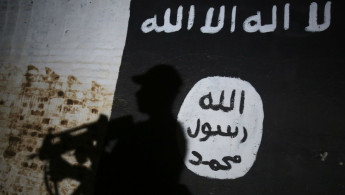Joint US-Iraqi operation against ISIS sets off political debate over US forces' role in Iraq
A joint military operation conducted last Thursday by Iraqi and US forces against ISIS in the Anbar Desert, western Iraq, ignited heated political debates among various Iraqi factions. The operation, which resulted in the death of 14 ISIS militants, including key leaders, raised concerns over the role of US forces in Iraq, who are officially restricted to advisory and training capacities.
The Iraqi army, in coordination with the intelligence services, declared the operation a "strategic success," highlighting the collaboration with international coalition forces.
According to ABC News, five US personnel were injured during the operation, with one requiring evacuation for further treatment. Two additional personnel were injured from falls, with one also evacuated for follow-up care. All injured personnel are reported to be in stable condition.
CENTCOM did not confirm these injuries and reported that 15 ISIS militants were killed in the raid. It did not specify the types of US forces involved.
Ghiyath Surchi, a senior figure in the Patriotic Union of Kurdistan (PUK), stated in an interview with The New Arab that the US maintains a limited number of combat forces in Iraq primarily to safeguard its embassy and interests.
He argued that while these forces are not equipped to confront large-scale threats, their support remains crucial for Iraqi security forces, which still require modern weapons, technology, and intelligence capabilities provided by the coalition.
Surchi further warned that a complete US withdrawal could leave Iraq vulnerable to a resurgence of ISIS, potentially greater than the threat faced in 2004 when ISIS seized significant territories in Iraq. He suggested that some Iraqi politicians' calls for a US withdrawal are motivated by political and electoral considerations.
Contrastingly, Ali Al-Bandawi, a member of Iraq's Parliamentary Security and Defence Committee, voiced surprise over the American involvement, questioning the timing of the announcement regarding US casualties. He told Al-Arabi Al-Jadeed’s reporters in Baghdad, Muhammed Emad and Safa al-Kubaisi that the US might be leveraging the situation to underscore Iraq's continued dependence on international coalition support, potentially impacting negotiations aimed at withdrawing foreign troops.
Iraqi Prime Minister Mohammed Shia' Al-Sudani has consistently maintained that US forces in Iraq are not engaged in combat roles and are solely present in an advisory and training capacity.
On Sunday, during a meeting with General Kevin Leahy, the Commander of the International Coalition Mission to Combat ISIS in Iraq, Al-Sudani reiterated that ISIS remnants no longer pose a significant threat to Iraq.
According to a statement from the Prime Minister's office, discussions during the meeting also touched on the future of coalition support, transitioning from a combat mission to a framework of bilateral relations between Iraq and coalition member states.
Lack of clarity on US forces' role
The Iraqi military has yet to clarify the necessity of US involvement in this specific operation or detail the exact role played by US forces. This ambiguity contrasts with statements by Iraqi officials, including Al-Sudani, who have reiterated that Iraqi forces do not require foreign military support beyond advisory and training roles.
A military source quoted by Al-Araby Al-Jadeed indicated that Iraqi forces requested US support for an airborne assault in the rugged terrain of Anbar, particularly in Al-Hazimi, east of Wadi Al-Ghadhaf, near the Syrian and Jordanian borders. The source explained that the challenging geography and the high stakes of targeting key ISIS leaders justified the request for US assistance.
Al-Fatlawy, a leader in Iraq's ruling Coordination Framework, questioned the necessity of US military involvement, especially since earlier operations were conducted without foreign assistance. He suggested that the timing of this joint operation might be intended to disrupt negotiations focused on ending the international coalition's presence in Iraq.
The operation has intensified doubts over the Iraqi government’s negotiations with Washington regarding the withdrawal of the international coalition. Conflicting statements from Iraqi officials have suggested a potential delay in troop withdrawal, following recent attacks on the Ain Al-Asad base, which hosts US soldiers.
The government has not yet provided a clear timeline for the withdrawal or whether talks will continue, contributing to uncertainty and tension within Iraq's political landscape.




 Follow the Middle East's top stories in English at The New Arab on Google News
Follow the Middle East's top stories in English at The New Arab on Google News


![A group of Palestinians, foreign and Israeli activists gather to participated in an olive picking event on the land in the town of Battir, which is under threat of confiscation by Israel in Bethlehem, occupied West Bank on 8 November 2024. [Getty]](/sites/default/files/styles/image_330x185/public/2182930803.jpeg?h=199d8c1f&itok=__0LgGsa)